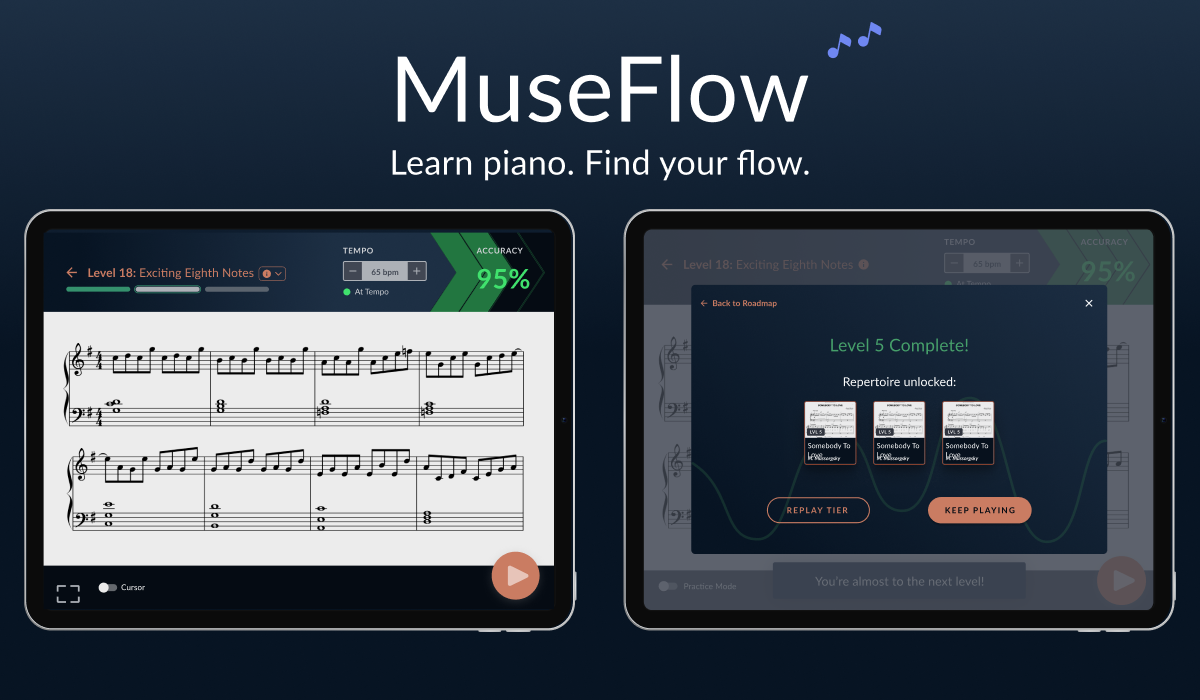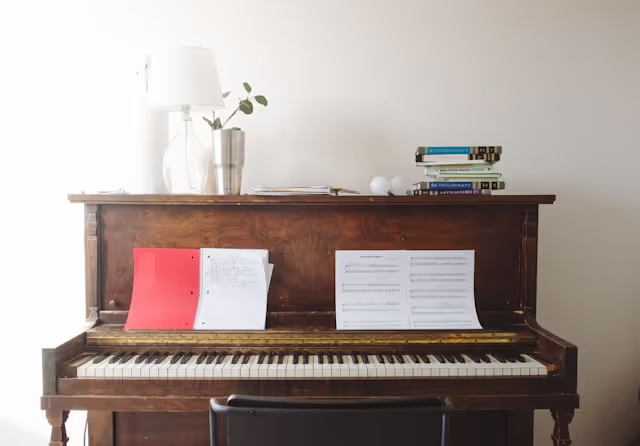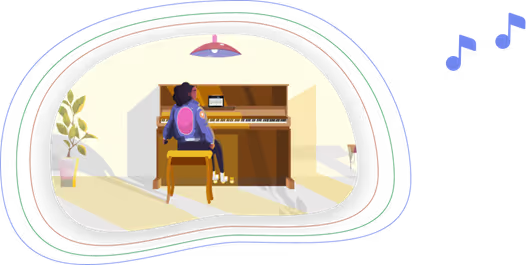.svg)
The Power of Just-In-Time Learning and Flow State in Music Education
In the fast-paced world of modern education, there are two transformative principles reshaping how we learn: just-in-time learning and flow state. These concepts challenge traditional teaching methods, offering learners a more intuitive, engaging, and effective way to build skills. Nowhere is this shift more impactful than in music education, where these principles are helping students connect deeply with their craft, and revolutionizing a pedagogy steeped in tradition and structure.

What Is Just-In-Time Learning?
Just-in-time learning turns traditional education on its head. Instead of overwhelming students with theory upfront, it prioritizes hands-on experience, letting learners absorb theoretical knowledge as it becomes relevant. Imagine learning to ride a bike by hopping on and pedaling, rather than first reading a manual. This approach creates a direct link between knowledge and kinesthetic understanding.
Music education is a where this method shines. Whether mastering a new rhythm, note, or doing a sight reading exercise, students often benefit more from actively engaging with the music first, than from lengthy theoretical instruction. If it was the other way around, we wouldn’t have anything to ground us when we learned the theory! It’d just be a mish-mash of concepts we didn’t know how to apply. As Lucy Green notes in How Popular Musicians Learn, many successful musicians develop their skills through practical, real-world learning experiences. By tackling challenges as they arise, learners retain information better, and can apply it more effectively.
The Role of Flow State in Learning
The flow state, a concept introduced by positive psychologist Mihály Csíkszentmihályi, is a mental goldilocks zone where challenge and skill meet perfectly. In this state, learners are completely immersed in their task, losing track of time while being deeply rooted in the present. Flow transforms learning into a rewarding and deeply enjoyable experience.
For musicians, achieving flow is transformative. Imagine a practice session where every note feels effortless yet engaging… a space where learning feels less like work and more like play. Research suggests that learners in flow not only learn skills faster but also sustain intrinsic motivation longe.
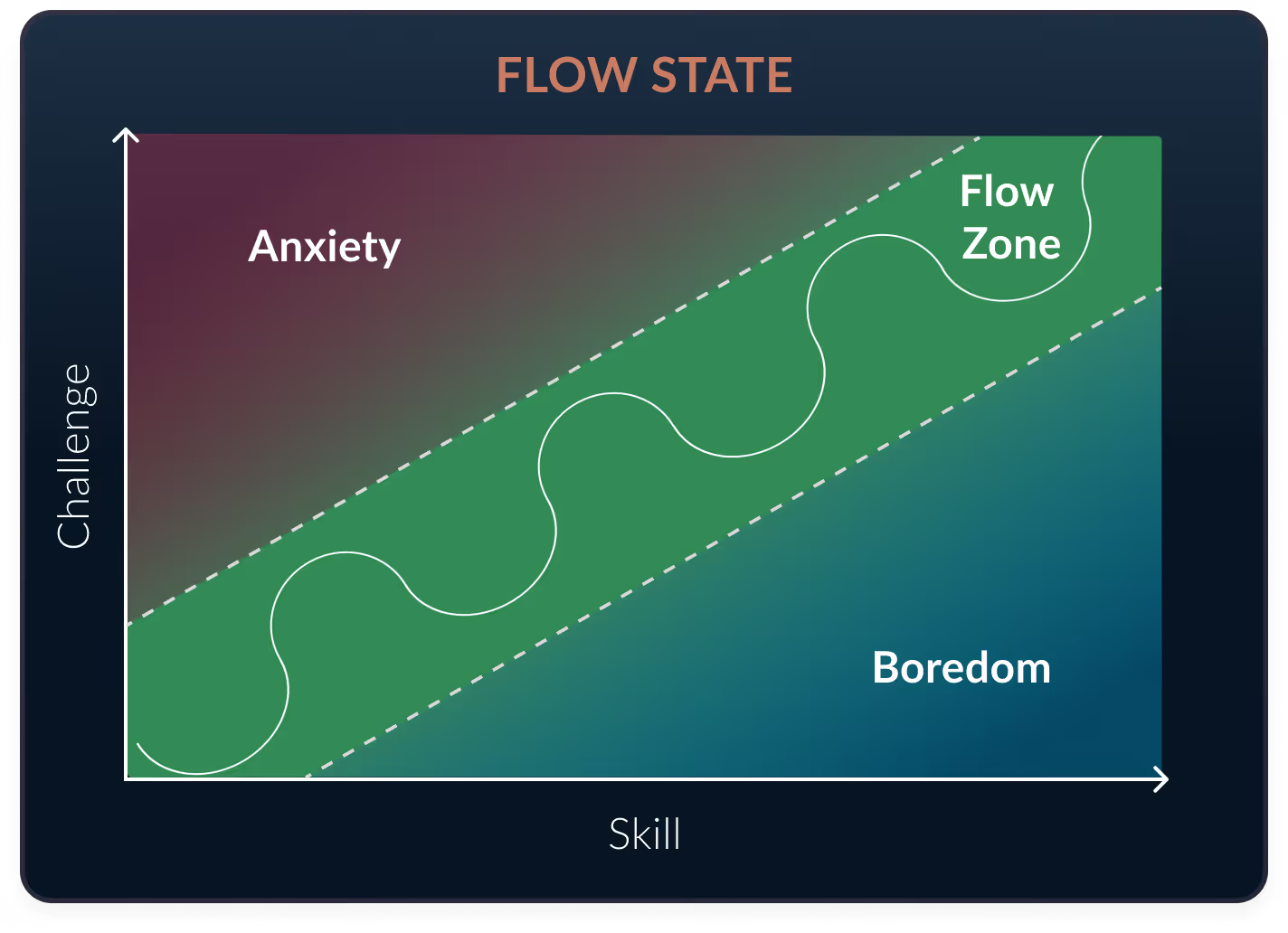
Why These Principles Matter in Music Education
Just-in-time learning and flow state address common hurdles in traditional music education. Many students feel overwhelmed by complex theory before they've even had the chance to see its practical value! Others lose motivation when faced with monotonous drills that fail to connect them with the joy of making music.
By focusing on active engagement and creating an environment where learners can stay in a state of flow, educators can foster a love for music that goes beyond technical mastery. These approaches encourage curiosity, resilience, and a deeper connection to the art and craft of music-making.

How MuseFlow Applies These Principles
At MuseFlow, we’ve built a music education platform that embodies the best of just-in-time learning and flow state principles. Here’s how we’ve turned these ideas into a transformative learning experience:
- Adaptive Learning: MuseFlow’s sight reading engine adjusts to the learner’s skill level, ensuring they are consistently challenged without being overwhelmed. This keeps users engaged and in flow state.
- Immediate Feedback: Students receive real-time feedback on their playing, helping them correct mistakes and learn on the fly… perfectly aligned with just-in-time learning.
- Gamified Learning: Our goal-oriented, level by level structure allows students to build skills incrementally, maintaining the balance between challenge and achievement.
- Dynamic Content: By generating fresh, adaptive music, MuseFlow ensures that learners always have new material to explore, keeping practice sessions exciting and immersive.
Through these features, MuseFlow not only teaches music, but also transforms how students experience learning it. By prioritizing engagement and practical learning, we help students of all ages and skill levels discover the joy and fulfillment of making music.
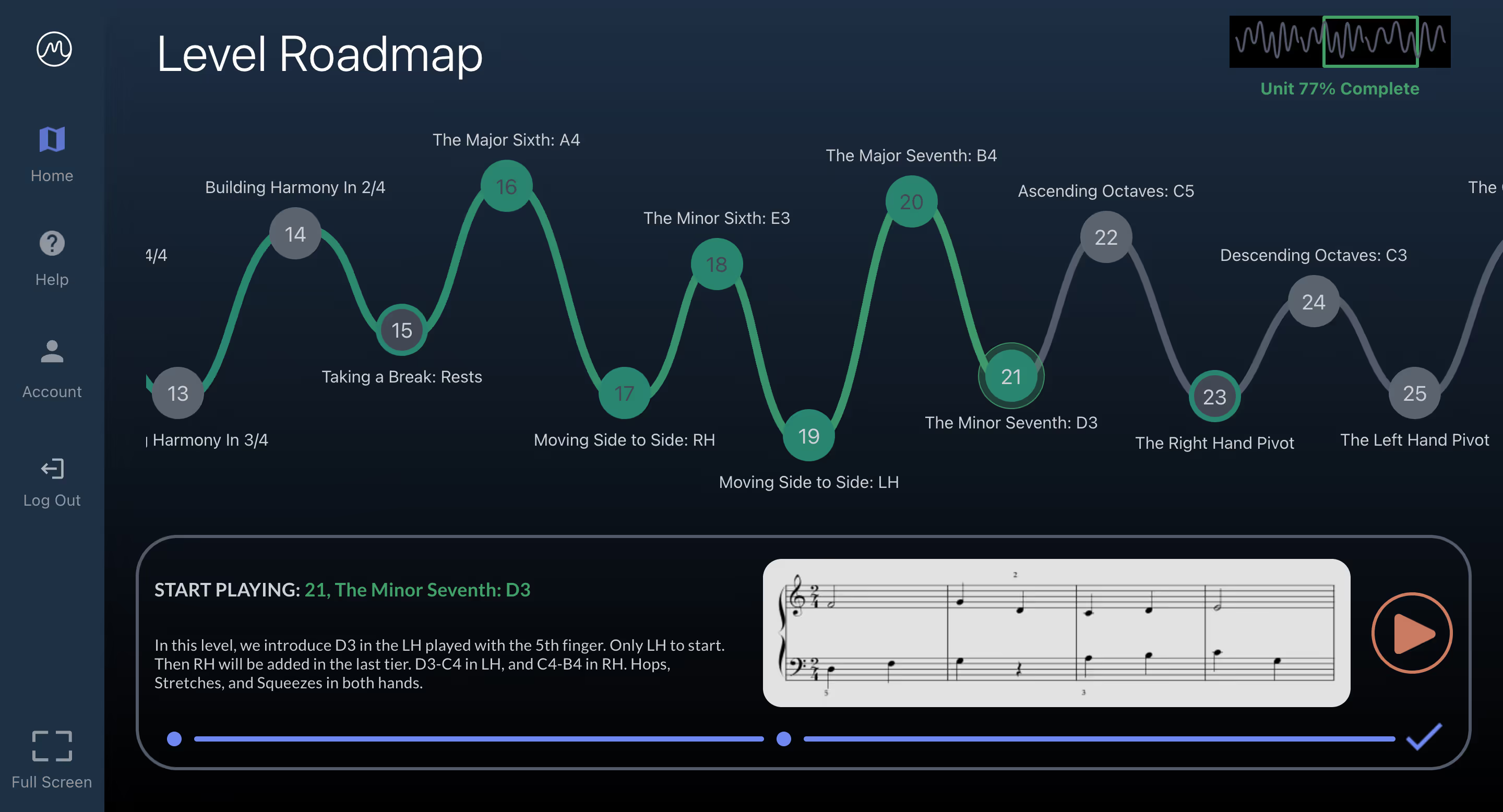
A Revolution in Music Education
Whether you’re a beginner learning your first note or an advanced player sharpening your sight reading skills, just-in-time learning and flow state offer a path to deeper, more rewarding learning. Platforms like MuseFlow are at the forefront of this revolution, making music education more intuitive, enjoyable, and effective than ever before.

Resources
- Csíkszentmihályi, M. (1990). Flow: The psychology of optimal experience. Harper & Row.
- Duke, R. A. (2022). Intelligent music teaching: Essays on the core principles of effective instruction. Learning and Behavior Resources.
- Green, L. (2017). How popular musicians learn: A way ahead for music education. Routledge.
- Voss, B. (2022). Design principles for music technology education support: Just-in-time learning in the recording studio using mobile technologies. ResearchGate.


.jpg)

